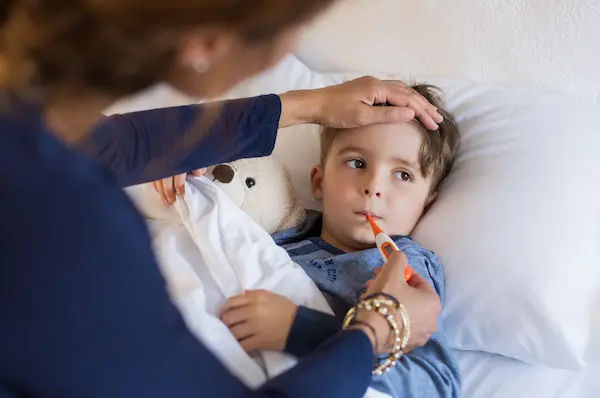- Female
- 33 Years
- 22/01/2025
I'm really concerned about my 3-month-old baby because my husband drinks alcohol every day and sleeps right next to the baby. I'm worried if this could affect our baby in any way. Are there any possible side effects I should be aware of?
Answered by 1 Apollo Doctors
It's understandable to be concerned. If your husband is drinking alcohol regularly, there's a risk of accidental exposure to secondhand alcohol or other issues, especially if he's not fully alert while sleeping next to the baby. It's important to ensure a safe, sober environment for your baby to avoid any risks, including suffocation or impaired caregiving.
Dr. Mubarak Suggests...
Consult a Paediatrician
Answered 04/07/2025
0
0

More Paediatrics Health Queries
View allI'm wondering about what's happening with my 6-month-old baby. We've been putting coconut oil in his ears every day, and now it seems like there's this wax-like substance covering them. Should we keep doing this, or is it something we should stop?
No you are harming the baby, visit ENT doctor for evaluation and appropriate management.
Answered by 1 Apollo Doctors
I'm really worried about my daughter who's been struggling with pneumonia for the last six years. She had a really bad attack and was admitted to the hospital. Over the past two years, she's been having chest pain and coughs a lot, especially when someone taps on her back. Should I be concerned about these symptoms? What do you think might be causing this, and are there any specific steps I should be taking to help her get better?
pneumonia doesn't last for this long. do one chest xray
Answered by 1 Apollo Doctors
I'm a bit confused and worried about my baby's vaccination schedule. My little one is 10 months old and we got the MMR vaccine done last month. Now, with the government announcing another round of MMR vaccinations, should I take her for this one too? Is it necessary or are we covered with the one we've already done?
no need as she is already vaccinated
Answered by 1 Apollo Doctors
Disclaimer: Answers on Apollo 247 are not intended to replace your doctor advice. Always seek help of a professional doctor in case of an medical emergency or ailment.





